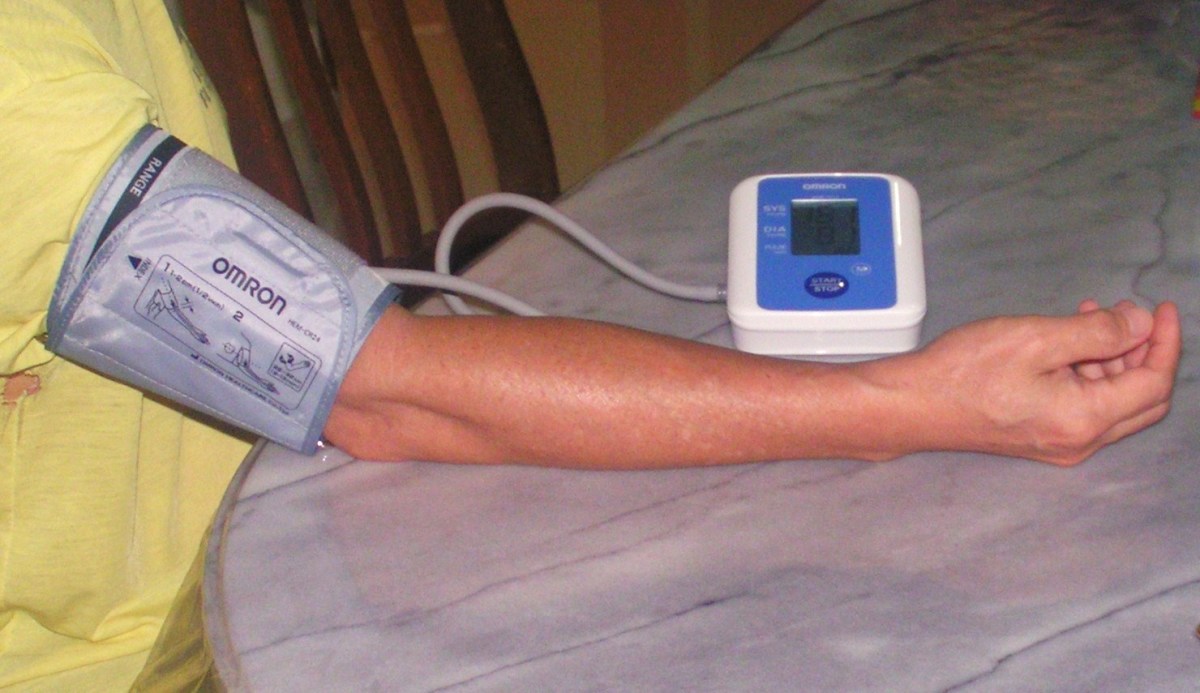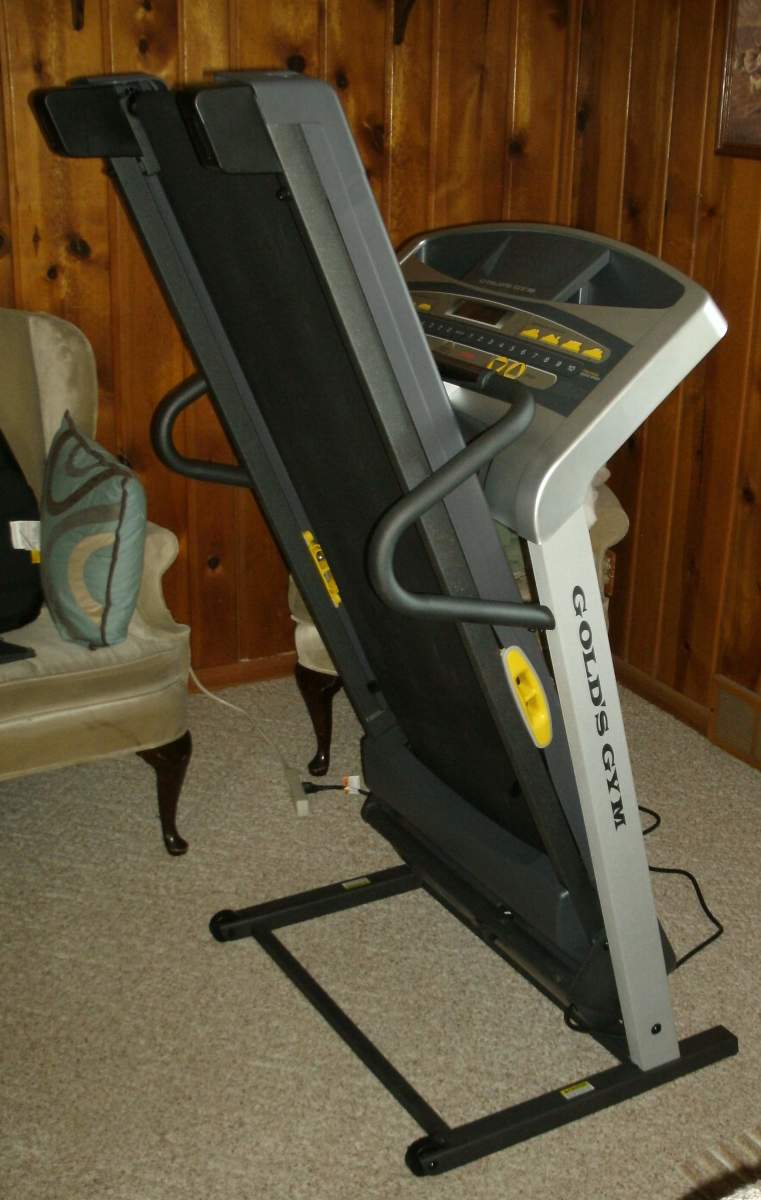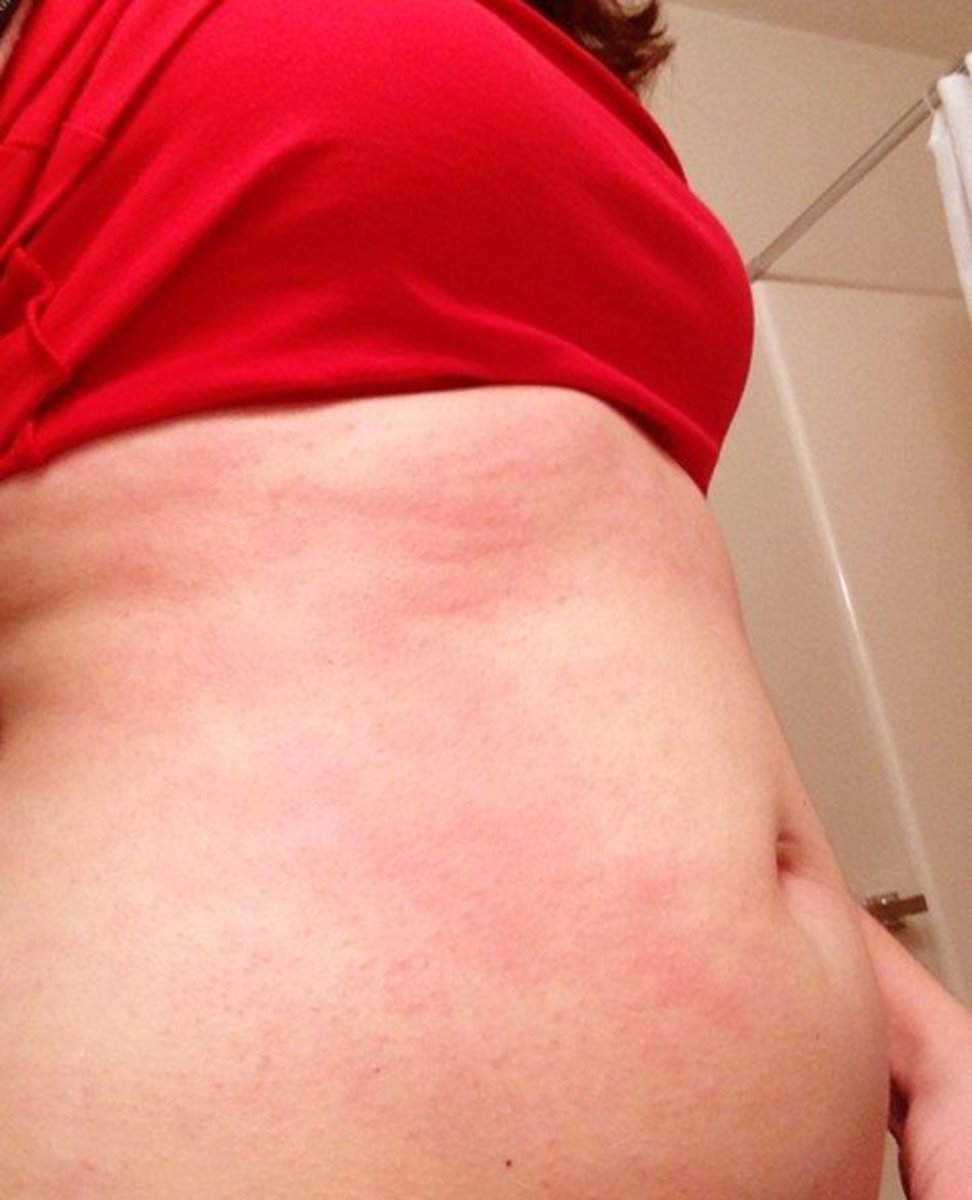The Single Best Thing You Can Do For Your Health
Michael Roizen M.D.
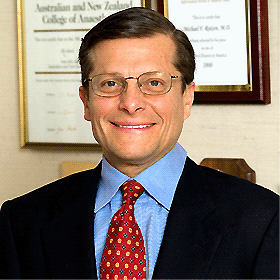
Single Best Thing For Your Health | Walking
The title of this is according to Michael Roizen M.D. He created the Real Age concept, company and RealAge.com. He also wrote those YOU books with Dr. Oz like YOU: The Owner's Manual, YOU: The Smart Patient, YOU: Staying Young, YOU: On a Diet and YOU: Being Beautiful. Over 2,400 years ago, Hippocrates said, "Walking is a man's best medicine."
In a 2008 article: Erase Years From Your Age in 30 Minutes a Day, Dr Roizen says:
Walking is the single best thing you can do for your health. I view it as the fountain of youth.
Walking helps prevent fatty buildup in the arteries. When your arteries are clogged with fatty buildup, your cardiovascular system ages more quickly and so does your entire body. Aging of the arteries brings on cardiovascular disease, the major cause of heart attacks and strokes.
He suggests 30 minutes a day as optimal but says:
Studies show that people who walk as little as 10 minutes a day-- or even just once a week-- on a regular basis have less risk of dying prematurely than those who are sedentary [coach potatoes].
He suggests that you warm-up first by walking slower than usual for a few minutes and then stretching when you are done. I personally think that it is better to stretch first and you can still stretch afterwards if you want. Here is Weight-control Information Network (WIN) of the National Institute of Diabetes and Digestive and Kidney Diseases (NIDDK) of the National Institutes of Health (NIH) with stretching you can do right after the warm-up. It says:
Walking may: Tone your muscles and strengthen your bones and lower your risk of health problems, such as high blood pressure, heart disease, high cholesterol, and type 2 diabetes.
The Department of Cambridge Community Development (this website is down) says:
Walking is good for your heart. A recent Harvard [University] study shows that walking at a moderate pace (3 mph) for up to 3 hours a week—or 30 minutes a day--can cut the risk of heart disease in women by as much as 40%. This is the same benefit you would get from aerobics, jogging, or other vigorous exercise.
It lists different benefits including helping circulation and the immune system. The Mayo Clinic says that walking lowers the LDL bad cholesterol, raises the HDL good cholesterol and lowers your blood pressure.
Harvard Medical School has an article called Walking: Your Steps to Health. It says:
Among 10,269 male graduates of Harvard College, walking at least nine miles a week was linked to a 22% lower death rate.
Among 44,452 male health professionals, walking at least 30 minutes a day was linked to an 18% lower risk of coronary artery disease.
Among 72,488 female nurses, walking at least three hours a week was linked to a 35% lower risk of heart attack and cardiac death and a 34% lower risk of stroke.
Livestrong.com is a part of the Lance Armstrong Foundation. It has an article called Does Walking Clear Your Arteries. It explains that since walking raises the good HDL cholesterol, that it clears up the arteries and reduces the bad cholesterol. Getting the bad cholesterol out of the arteries, clears out the arteries and reduces the chance of plaque forming in the arteries.
Here is an infographic on walking. It mentions boosting endorphins, limits sickness, works arm and shoulder muscles, builds bone mass, strengthens legs, burns more fat than jogging, reduces glaucoma risk. halves Alzheimer's disease risk by over 5 years, improves blood pressure by 5 points, engages ab muscles, limits colon cancer by 31% for women and improves balance preventing falls.
Here is an interesting article about the speed that you walk at: Walk 3mph… or DIE! Study shows dawdlers don’t outpace the Grim Reaper. This tells about studies done that showed that some of the people walking at 2 miles per hour died, but none of the people walking at 3 miles per hour died. So they figure that if you walk at 3 miles per hour, the Grim Reaper or Death cannot keep up with you and you will escape death.
To help you to do this, you can create a habit like when you get home after driving, you can walk around the block a few times. Hiking on mountains is a fun way to walk. I live in Arizona that may have more mountains than any other state. I have done some 4 hour hikes. Even with no studies done on that, I feel that it really cleans out the arteries. Man has been designed to walk for hours to get to different places. Running is done for a minute to get out of dangerous situations among our ancestors. Unlike walking, running is high impact.
I have climbed to the top of Vulture's Peak in Wickenburg, AZ many times. Most of it is hiking but at the top it is steeper and you must use your hands to climb. There is a really nice experience in using your arm strength with your leg strength and holding the rocks with your hands. That must be why people love rock climbing so much. Also it builds or maintains your muscles better than just walking. As people get older, they lose muscle mass making resistance training also necessary.
According to video below the top 5 benefits of walking are:
1. Walking boosts the function of the heart, lungs and circulation.
2. It lowers blood pressure and helps manage weight.
3. It boosts the immune function.
4. It lowers blood pressure and helps manage weight.
5. Walking is low impact and is free.
Another benefit of walking is it helps to keep one regular and keep constipation from bothering you. For a better way to go to the bathroom that keeps you more regular and healthy, see Is the Way That You Are Going to the Bathroom Shortening Your Lifespan. Also if you do it outside then you also can get vitamin D during certain hours. See Many Health Benefits of Vitamin D. Also during any hours you can get nitric oxide from sunlight. See Greatly Improve Circulation With Nitric Oxide.
The video below has 10 benefits from walking. First it has brain boosting effect that lowers chance of dementia. Improve eyesight (prevents glaucoma), prevents heart disease, increases lung volume, benefits the pancreas and sugar metabolism, improves digestion, tones the muscles, makes joints and bones sturdier, relieves back pain and gives you a calmer mind.
What Will Happen to Your Body If You Walk Every Day
16 Year Old Girl Dies Right After Running a Half Marathon
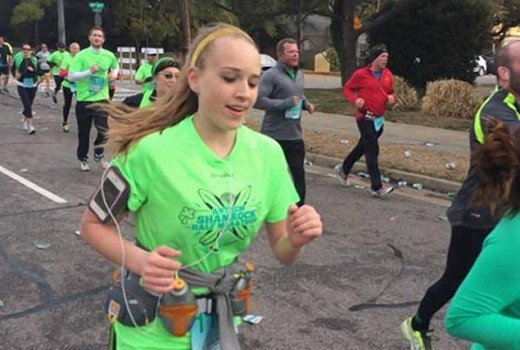

Is Running Dangerous for Health
A marathon is about 26 miles. Cameron Gallagher was 16 years old with no health problems. She ran a half-marathon (about 13 milels) on Sunday March 16, 2014. Right after the race, she collapsed and died. The cause of death has not been released. See picture and story on the right.
Update
Four months later they released the cause of death. Cameron Gallagher’s Parents Learn Cause of Teen’s Death says:
Almost four months later, David and Grace Gallagher now know what caused the death of their 16-year-old daughter Cameron Gallagher: A heart condition called cardiac arrhythmia.
This is nonsense. This is not a cause of death. This is what contributes to a cause of death. Like smoking is not a cause of death. The article also says:
“Which is a condition where the electrical impulses in your heart stop. And that happened right after the race,” said David Gallagher.
That is not what it is called when that happens. More from article:
“Grace and I are convinced that this was something of a freak occurrence because of Cameron’s long, athletic background.”
Cameron played basketball as a kid, ran with her family, and as a teen–competed on a swim team.
“And really had no symptoms of any heart conditions.”
Now here is what you get when you plug in cause of death and what they said it was. Sudden Cardiac Death (Sudden Cardiac Arrest). It says:
Sudden cardiac death (SCD) is a sudden, unexpected death caused by loss of heart function (sudden cardiac arrest). Sudden cardiac death is the largest cause of natural death in the United States, causing about 325,000 adult deaths in the United States each year.
How is sudden cardiac arrest (AV) Node different from a heart attack?
Sudden cardiac arrest is not a heart attack (myocardial infarction). Heart attacks occur when there is a blockage in one or more of the coronary arteries, preventing the heart from receiving enough oxygen-rich blood. If the oxygen in the blood cannot reach the heart muscle, the heart becomes damaged.
In contrast, sudden cardiac arrest occurs when the electrical system to the heart malfunctions and suddenly becomes very irregular. The heart beats dangerously fast. The ventricles may flutter or quiver (ventricular fibrillation), and blood is not delivered to the body. In the first few minutes, the greatest concern is that blood flow to the brain will be reduced so drastically that a person will lose consciousness. Death follows unless emergency treatment is begun immediately.
Most sudden cardiac deaths are caused by abnormal heart rhythms called arrhythmias.
On the same day, March 16, 2014, there was a Brooks Fleet Pre-London Half Marathon. A man collapsed at the end of the route and died. I cannot find the name and age of this man.
In April 2014 there was a Rock ‘n’ Roll half marathon in Raleigh, N.C. Near the finish line 2 men, one age 31 and the other age 35, died. The doctor there said that cardiac arrest is an inherent risk at these races. Please note that almost all of the racers that die, die near the end of the race. Also there is a higher risk of death for marathons than at half-marathons.
The amount of people dying from these races is very small. But there is a good chance that if the 16-year-old girl was not in that race, she may have lived a long life. Also the 31-year-old and 35-year-old may have been married and had kids. The PubMed study below shows how many people died in these races between 2000 and 2010.
According to Wikipedia:
Cardiac arrest, also known as cardiopulmonary arrest or circulatory arrest, is the cessation of functional circulation of the blood due to failure of the heart to contract effectively.
This is different than a heart attack where blood flow to the heart muscle is impaired. During congestive heart failure, the blood flow is sub-standard but the heart continues to beat. A pizza store owner had health problems like swelling in his legs and went to a doctor. They did many test but could not determine what was wrong with him. But they put him on medications. A year later he died. An autopsy showed that the year before that he had had congestive heart failure.
A 58 year old man, Micah True (born Michael Randall Hickman), took part in a 51 mile Copper Canyon Ultra Marathon (from Wikipedia). He was a famous and experienced runner. He was found dead with no signs of trauma. Autopsy was inconclusive with cause of death. But he did have idiopathic cardiomyopathy that caused his left ventricle to become enlarged. Runners world says that many runners die near the end of a marathon or half-marathon.
Webmd.com talks about a study that showed that running more than 20 hours a week shortens lifespan. Please note that the theory about this says that people were not designed to run long distances. They were designed to run for a minute or 2 to catch an animal or to escape an animal. But people were designed to walk for long distances.
PubMed is part of the U.S. National Library of Medicine that is one of the National Institutes of Health (NIH). They have an article called Cardiac arrest during long-distance running races. It says:
CONCLUSIONS:
Marathons and half-marathons are associated with a low overall risk of cardiac arrest and sudden death.
Dr. Paul Thompson, the chief of cardiology at Hartford Hospital in Connecticut says:
You are at slightly higher risk of suffering a heart attack during a marathon.
Here is an article called Running Marathons Can Be Terrible for Your Heart from Business Insider. It says:
A report from the Canadian Journal of Cardiology earlier this year found that half of runners studied suffered decreased right and left ventricle function (which work together to pump blood to the body) in the 48 hours after completing the Quebec City Marathon. Researchers also found general swelling in the heart, which caused reduced blood flow.
The damage each time you run, however, can add up over the years.
This article says that Micah True (mentioned above) died from cardiomyopathy. Although the above does not say that. Dr. Joseph Mercola (O.D. - osteopathic doctor or Doctor of Osteopathic Medicine) has an article called Long-Distance Running: One of the Worst Forms of Exercise There Is. It has a lot of information but one bit of it is:
- 12 percent of the athletes had scar tissue in their heart muscle detected on MRI scans one week after the race.
In another article Dr. Mercola says:
Researchers found that during a marathon more than half of the segments in your heart lose function due to an increase in inflammation and a decrease in blood flow, and this temporary heart damage may play a role in marathon deaths.
So instead of running you can walk or use a bicycle and do cycling. While walking it may be good to run for a minute and then go back to walking. With cycling, you can take a minute to cycle as fast as you can and then go back to your normal speed. Running for a minute is still high impact. But cycling very fast is not high impact.









